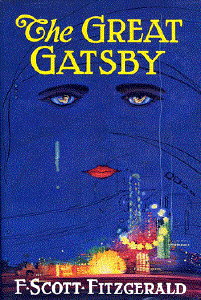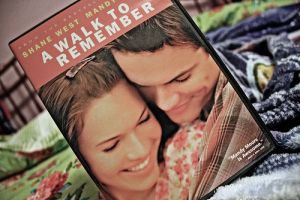Read any good books lately? See any good movies? How about a good movie adapted from a book?
Literature has been an inspiration to the Hollywood film industry for decades. Some movies break box office records, while others go straight to DVD. You might not even realize that some of your favorite movies are based on a book.
The interesting concept about books that have movie adaptations is that books are not written to become movies. When “Cinderella” was written in 1697 by Charles Perrault, he had no other intention then to keep it in storybook form. The story of “Cinderella” has been adapted on many occasions, the most popular being the Disney cartoon version of the film.

F. Scott Fitzgerald wrote “The Great Gatsby” in 1925 and since then, there have been five adaptations of the story translated to the big screen.
The first adaptation was released in 1926 as a silent movie. Three reworked pieces were released between 1949 and 2000. The most recent, starring Leonardo DiCaprio as Gatsby, was released in 2013. This adaptation puts a colorful spin on the film, using modern music and fast camera work to convey the timeless story.
In the past 20 years, many book series has been adapted to film.
In 1997, the first book of the Harry Potter series was published. “Harry Potter and the Philosopher’s Stone,” published in the United States as “Harry Potter and the Sorcerer’s Stone” in 1998, was the first of a seven-book series. The series was published rapidly, with the final book being published in 2007.
The first movie was released in 2001 and grossed $974.8 million at the box office worldwide. Seven movies followed the first, cutting the last book into a two-part film. The Harry Potter franchise is the second most successful in the world, following the Marvel Cinematic Universe.
While some movies hit the big time, others are not as celebrated. During the book-to-film process, some elements of the story get lost in translation.
Maria Merino, sophomore early childhood and special education double major, does not think that the movie “A Walk to Remember” reached the standards of the book.

“The book had a lot more emotion than it did in the movie,” said Merino. “I felt like the movie sped the story up too much.”
“A Walk to Remember,” written by Nicholas Sparks, takes place in 1958 while the movie takes place in the late 1990s. Scenes are executed differently and the not-so-ambiguous ending of the movie differs from the enigmatic ending of the book.
“I loved ‘The Fault In Our Stars‘ book and movie,” said sophomore biology major Ajeya Rayman. “I think the two were very closely correlated to one another. Not many scenes were cut out or different and I liked the similarity between them.”
“The Fault In Our Stars,” written by John Green, was adapted into a movie in 2014. Often listed on the required reading list for high school students, the heart-wrenching story has touched millions with over 10.7 million copies of the book sold worldwide.
The debate of reading the book versus watching the movie has been going on for a while. On one hand, the book is the original story. Literature gives readers the opportunity to visualize the story through their own imagination.
On the other hand, movies provide an experience appealing for the senses. Seeing and hearing impacts the senses, making you feel more emotionally connected to the story.
Alexis O’Toole, sophomore history and secondary education double major, has found that reading a book can have more impact than watching a movie.
“Book-to-movie adaptations create a cheat in the system,” O’Toole said. “People think that watching the movie will be the easier route and take less energy.”


